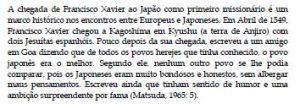Recently I’ve been studying Japanese adjectives, I felt like that was missing in my studies and it’s something needed for making sentences (actually I’ve studied them before, but very midly…)
Tim Matheson’s study material has been a great support, since everything is explained in a clear language with good examples and in a logical sequence.
So, there’s true adjectives that end in i and in shii, they remain unchanged despite appearing after or before the noun. Examples are given by me, I hope that there are no mistakes! ^^;
Example: Sabishii (lonely)
Sono kodomo wa sabishii desu (That child is lonely)
Sabishii kodomo wa kouen ni asobimasu. (A lonely child is playing in the park)
Quasi – adjectives (sometimes referred to as na adjectives) have na attached when they come before the noun and drop the na if they come after the noun.
Example: Kirei (pretty)
Kore wa kirei na hana desu (This is a pretty flower)
Kono neko wa kirei desu (This cat is pretty)
These are the basics, to use adjectives properly I recommend (again) Tim Matheson’s work, this time his Japanese Adjectives available in his website http://www.timwerx.net/home/index.htm.
